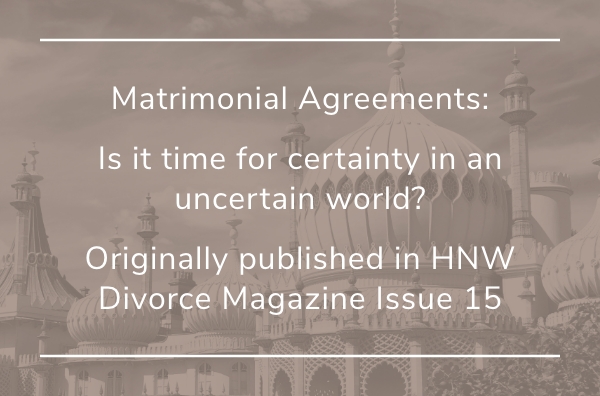This article was originally published in HNW Divorce Magazine and is published with the kind permission.
More than ever the Courts are encouraging parties to come to agreements to resolve disputes between themselves for a variety of reasons; be it to reduce delay, costs, or manage the sheer volume claims proceedings through the Courts. It therefore seems to raise the questions of why pre and post nuptial agreements (matrimonial agreements) still are not deemed legally binding within the UK legal system.
Historically, it was viewed that one party could not by their own covenant prevent themselves from ‘invoking the jurisdiction of the Court or preclude the Court from the exercise of that jurisdiction’1 This of course being said in the context of the era, but it would appear the law, whilst advancing, has not done so in the line of the views of an ever-developing society.
Radmacher (formerly Granatino) v Granatino2 was determined over a decade ago and yet remains the highest authority for marital agreements to date. Within the same, the UK Supreme Court made it clear that no matter the time at which agreement was entered into, pre or post nuptial, upon separation the Courts should apply the same principles when considering such agreements.
You can read the rest of this article in HNW Divorce Magazine or you can download the article here.
1 Hyman v Hyman [1929] AC 602
2 Radmacher (formerly Granatino) v Granatino [2010] UKSC 42
